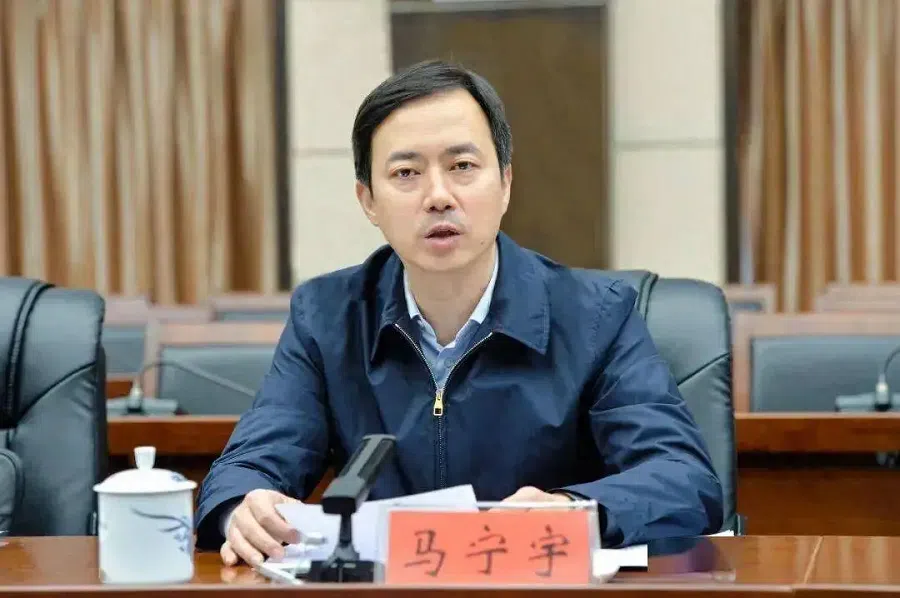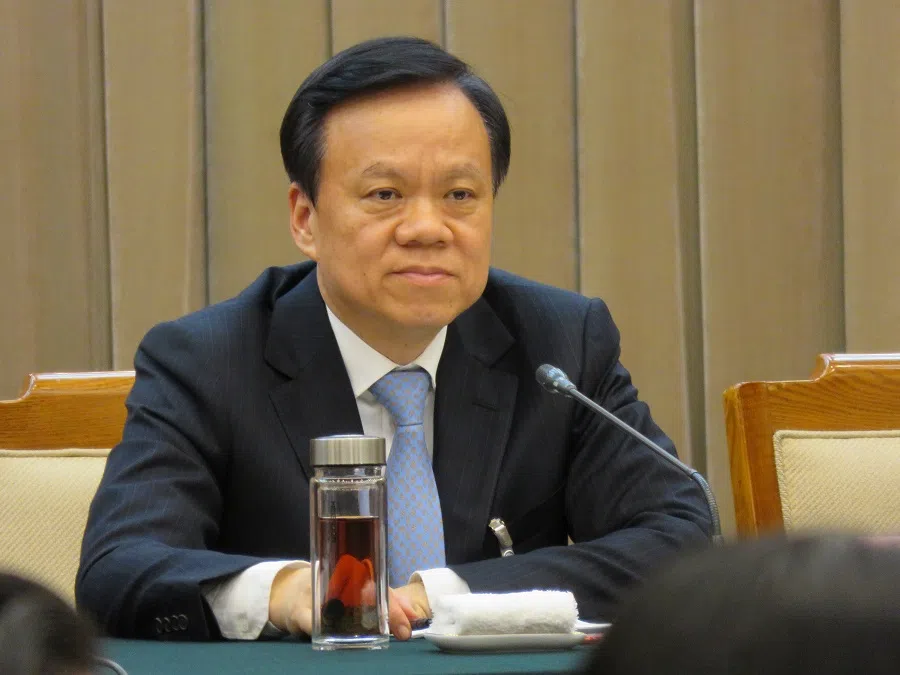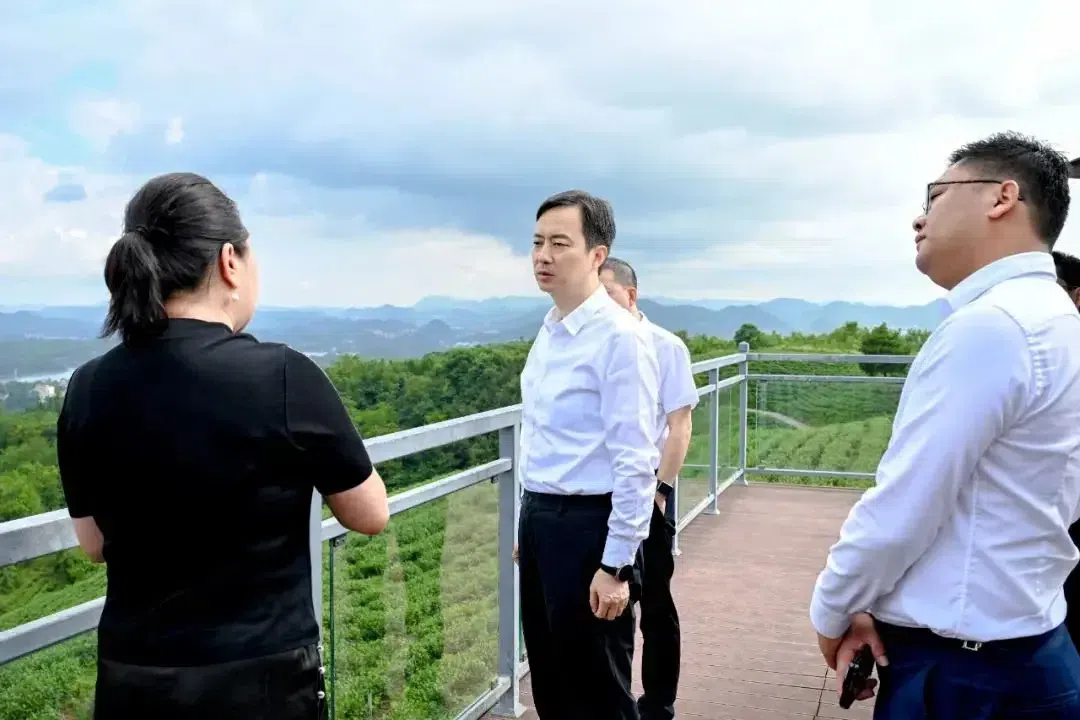How Guizhou’s big data dream became a corruption playground
Though China’s Guizhou province was once touted as a future hotbed for the big data industry, corruption has sabotaged the region’s initial potential. Lianhe Zaobao correspondent Edwin Ong discusses the situation.

China’s Guizhou province has seen an intensified corruption crackdown within its big data sector over the past six months. At the epicentre of this anti-corruption storm are the provincial capital, Guiyang, and the national-level Guian New Area.
Swept up in the crackdown were four consecutive mayors of Guiyang, the vice mayor of Guiyang in charge of big data, two successive top leaders and three second-in-commands of the Guian New Area, the first two directors of Guizhou’s Big Data Development Administration (BDDA), and numerous senior executives of state-owned big data enterprises.
Instead, the intensive investment and concentrated resources have fostered widespread corruption.
Corruption harvested
Interviewed academics noted that Guizhou has yet to translate heavy investments in the big data industry for over a decade into tangible economic output. Instead, the intensive investment and concentrated resources have fostered widespread corruption. This is believed to be the primary reason why the top leadership of the Chinese Communist Party (CCP) omitted the big data industry from their itinerary during their inspection tour of Guizhou in March this year.
Observers pointed out that the widespread corruption in Guizhou’s big data industry could tarnish the political legacy of former provincial leaders. Chen Min’er, current Politburo member and party secretary of Tianjin, served as Guizhou’s deputy party secretary, governor, and then party secretary between 2012 and 2017. During his tenure, he strongly championed the development of the big data industry, driving the province’s rapid economic growth. This focus on big data was continued by his successors, Sun Zhigang and Shen Yiqin.
Guizhou’s anti-corruption campaign continued this year with investigations into several high-profile officials connected to the big data sector. These include Guiyang vice mayor Liu Lan, former Big Data Development Administration (BDDA) director Jing Yaping, and Guizhou-Cloud Big Data Industry Development Company general manager Yang Yunyong. Jing and Yang also served together in the China Zhi Gong Party (中国致公党).
From 2014-2016, he [Ma Ningyun] worked in provincial economic and defence industry commissions during a period of rapid big data sector growth under then-governor Chen Min’er.

Network of corruption: who’s implicated?
Both Liu and Jing had connections to former Guiyang mayor Ma Ningyu, who had already been purged. Ma was also the first director of the BDDA. Jing served as deputy to Ma at the BDDA from 2016 to 2019, and succeeded him as director in 2021. Her downfall means that both the first and second directors of the BDDA have fallen from grace within a span of six months.
Ma, a 49-year-old Tsinghua University PhD holder born after 1975, was once a rising political star in Guizhou and, for a time, the youngest mayor of a provincial capital city in China.
Ma’s career in Guiyang began in 2005, culminating in his 2011 promotion to secretary of the Guizhou Communist Youth League. From 2014-2016, he worked in provincial economic and defence industry commissions during a period of rapid big data sector growth under then-governor Chen Min’er.
Xi also inspected the Guiyang Big Data Applied Exhibition Centre during his tour of Guiyang in June 2015. According to a Xinhua report at the time, Xi told local officials that Guizhou’s development of big data truly makes sense.

During his five-year tenure in Guizhou, Chen spearheaded the development of the big data and ecotourism sectors. The booming big data industry propelled Guizhou’s economic growth to the third-highest in the nation in both 2015 and 2016.
Winning Xi Jinping’s support
With its development long hampered by its mountainous terrain, Guizhou’s pioneering efforts in big data quickly caught the eye of the CCP’s top leadership. While participating in a deliberation with deputies of the Guizhou delegation during the 2014 Two Sessions, Chinese President Xi Jinping affirmed that attracting investment for the big data industry and developing the electronic information industry was a good choice for the province.
Xi also inspected the Guiyang Big Data Applied Exhibition Centre during his tour of Guiyang in June 2015. According to a Xinhua report at the time, Xi told local officials that Guizhou’s development of big data truly makes sense.

Accompanying Xi on that inspection tour were then-Guizhou Party Secretary Zhao Kezhi and then-Guizhou governor Chen. One month after Xi’s visit, Chen succeeded Zhao as Guizhou’s top official, partnering with Sun Zhigang, who took over as governor.
Guizhou subsequently designated big data as one of its key development strategies during the 13th Five-Year Plan period (2016-2020). In 2016, Guizhou was authorised to establish the country’s first national big data comprehensive pilot zone. In February 2017, the Guizhou Public Service Management Office was renamed the BDDA, becoming China’s first provincial-level, bureau-level big data administration. Ma Ningyu, then deputy secretary-general of the Guizhou Provincial People’s Government, concurrently served as its first director.
When Ma helmed Guizhou’s Bureau of Big Data Development and Management, he was a part of the negotiations for the 2018 settlement of US tech company Apple’s iCloud project in Guizhou.
CCTV Finance reported that by 2020, there were over 5,000 big data companies in Guiyang and the Guian New Area.
As the 13th Five-Year Plan concluded, CCTV Finance reported that by 2020, there were over 5,000 big data companies in Guiyang and the Guian New Area. Value added from the city’s digital economy hit 164.9 billion RMB (US$22.8 billion), accounting for 38.2% of local GDP and becoming a new driving force for Guiyang’s economic development.
In 2022, Ma was transferred to serve as the mayor of Guiyang, concurrently holding positions as the deputy secretary of the CCP Working Committee of Guian New Area and the director of the Administration Committee, until his fall from grace in August 2024.
Is Guizhou ready for data centres?
Tang Renwu, dean of Beijing Normal University’s School of Government, stated in an interview with Lianhe Zaobao that Guizhou’s significant investment in big data over the past decade has led to substantial economic and social development, raising Guiyang’s profile. However, as in the finance, energy and real estate sectors, the big data industry’s numerous project approvals have opened loopholes for corruption. He observed that the central government’s detailed, case-by-case anti-corruption campaign rendered the downfall of several high-ranking officials unavoidable.
The simultaneous influx of both government policies and business capital to a previously isolated and underdeveloped area thus provided a fertile breeding ground for corruption. — Tan Gangqiang, a Chinese commentator

Tan Gangqiang, head of Xiehe Psychological Consultation Office in Chongqing and a long-time observer of local politics, remarked that over ten years ago, Guizhou’s economy was primarily agriculture-based and unfamiliar with emerging technologies. It also lacked new management talent and experience in production efficiency. The simultaneous influx of both government policies and business capital to a previously isolated and underdeveloped area thus provided a fertile breeding ground for corruption.
Exploited big data for personal gain
The thriving big data industry also provided some opportunistic officials with the chance to climb the ranks quickly and form special interest groups.
A January anti-corruption documentary revealed that in 2016, Guiyang official An Jiuxiong meticulously arranged the reception of then-governor Sun Zhigang’s wife at the Big Data Expo, hoping to gain favour with the provincial leader. A remorseful An admitted his intentions in the documentary.
A January CCTV anti-corruption documentary also revealed that Sun used his family — wife, children and siblings — as intermediaries for corruption. Sun succeeded Chen Min’er as Guizhou party secretary in 2017, retired and stepped down from leadership roles in November 2020, and was sentenced to a suspended death sentence last October for accepting over 813 million RMB in bribes.
Unoccupied buildings: monuments to misplaced priorities
Guian New Area, approved by the State Council in 2014 as China’s eighth national-level new area, is located at the core between Guiyang and Anshun, covering a planned area of 1,795 square kilometres (nearly 2.5 times the size of Singapore), with a permanent population of close to 460,000. Over the past decade, it has been criticised for its overly ambitious construction projects, resulting in a leftover pile of unoccupied buildings.
Guian’s unoccupied buildings are a consequence of its development being driven by political motivations (“leadership” and “official economics”) rather than market forces. Frequent leadership changes exacerbated the issue... — Tan

This prefectural-level new area has faced significant turmoil over the past two years. Two out of its five successive top leaders (Qin Rupei and Ma Changqing) fell from power, while three deputy leaders (Chen Yan, Ma Ningyu, and Xiang Yun) — as well as three consecutive chairmen of the Guian New Area Development and Investment Company (Chen Yan, Zong Wen, and Xiang Yun) — have been subjected to investigations.
Most of the aforementioned cases are still under investigation or prosecution. Only Ma Changqing has been sentenced; in May last year, he received 11 and a half years in prison and was fined 1.2 million RMB for accepting bribes exceeding 33.09 million RMB. He was accused of illegally requisitioning over 300 mu (1 mu is approximately 666.67 square metres) of land during his tenure in Guian, far exceeding the red line for land use in the overall planning for the new area.
Tang Renwu noted that western regions, often less appealing to investors due to weak economies and inadequate business environments, can become breeding grounds for corruption during the development of national-level new areas. Developers may resort to bribery to secure advantageous land deals and tax breaks, leading to inefficient outcomes and widespread corruption.
Tan Gangqiang argued that Guian’s unoccupied buildings are a consequence of its development being driven by political motivations (“leadership” and “official economics”) rather than market forces. Frequent leadership changes exacerbated the issue, creating an environment conducive to unfinished projects.
An embarassment?
In March this year, Xi visited Qiandongnan Prefecture and Guiyang for a two-day inspection, marking his third visit to Guizhou since the 18th National Congress of the CCP in 2012. However, unlike the previous visits, this trip did not involve inspecting the big data industry, nor were there any instructions for Guizhou to further promote this industry.

Tang observed that while big data is a key component of new productive forces, it must be translated into concrete technological advancements. Unlike Shenzhen or Hangzhou, Guizhou has yet to achieve this, failing to produce influential industries based on big data.
Tan suggested that the CCP leadership’s bypassing of Guizhou’s big data industry during their high-level inspection signals a decreased emphasis on the sector, possibly due to a lack of significant achievements or underlying issues. He added, “Visiting such industries might be embarrassing for leaders, and even more so for subordinates.”
This article was first published in Lianhe Zaobao as “贵州大数据产业塌方式腐败 陷反腐暴风眼负责官员相继落马”.





